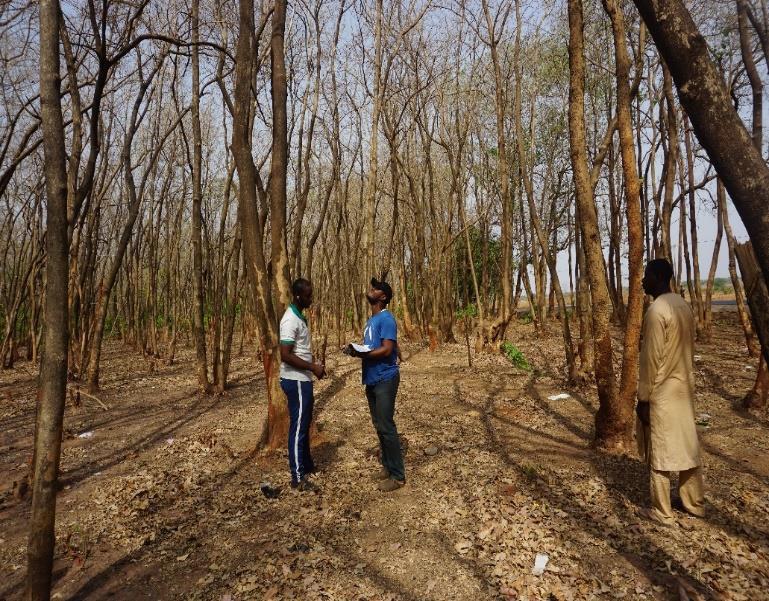Adenle Ademola Andrew
Other projects
26 Sep 2022
Community-Based Ecosystem Services and Livelihood Security as a Tool for Restoration and Conservation of Human Degraded Landscape in Niger State, Nigeria
The Guinea Savannah in Nigeria undergoes various social-ecological threats that have affected their conservation and capacity to provide ecosystem services. This research will focus on analysing the condition of native savannah vegetation, their degradation and impacts on their ecosystem services. It explores governance options to reduce savannah degradation, progress towards degradation neutrality and secure ecosystem services. The study questions will be analysed using hybrid method of remote sensing techniques along with surveys, focus group discussions and interviews to collect data, which will be quantitatively and qualitatively analysed to capture degradation. This research will yield initiatives for the savannah landscape conservation.

Mapping of remnants of Savannah in Zone C Niger state.
Natural savannahs are productive ecosystems that provide similar ecosystem services (food, non-timber forest products and fodder) like forest. Poor awareness and conflicting debates on vegetation succession has led to their poor calibration as forest. Thus, a huge misconception in their unique ecosystem values, conservation need as well as trending degradations. In Nigeria, natural savannahs of native species are widely threatened and fast disappearing, thus, posing ecological, social and economic problems on local communities that rely on the savannah for livelihood. Cases of savannah ecosystem degradation are often neglected with only a small amount being protected in the country. Sadly, those protected also lack true protections according to international standards.
My study will assess the long-term effects of land degradation in the Nigerian Guinea Savannah in relation to their transitional changes, specific hotspots, and impacts on their ecosystem services, with the aim of identifying ways of reducing degradation and its adverse effects on native savannah ecosystem services particularly their remnants. The study will distinguish the extent and severity of human induced degradations from climate related degradations. This will help contextualize the prevailing causes of their degradation and their geography across the area.
Further, I plan to embark on spatial-temporal mapping of the remnants of native savannah to determine their geography, trending depletion and associated host communities. Ecosystem services (provisioning service), derived by these communities and the governance structures to conserve savannah will be evaluated. This will reveal communities’ willingness to participate in savannah protection efforts. The feedback will raise awareness on the depletions and unsustainable practices endangering native savannah and provide basis to strengthen their practical conservation from community to national level. This work will influence targeted conservation policies and strategies for native savannah area protection, which is very vague in Nigeria.